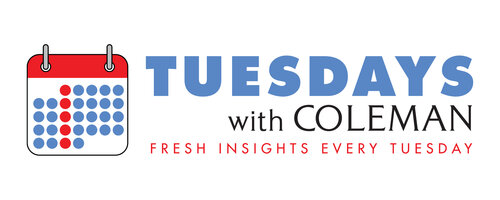
Our company has season tickets to the Durham Bulls, the iconic minor league baseball franchise fictionalized in the 1988 box office smash “Bull Durham”. The team, the AAA affiliate of the Tampa Bay Rays, is almost always good. They’ve won the division in three of the past five years, six of the past ten years, and 12 of the past 20 years. They’ve claimed the league championship in four of the past six years. It’s a great team that plays in a great ballpark.
And yet, every single year, when I’m picking out which games to attend, I end up having versions of the same conversation with members of my family and several friends.
“I like going to the ballpark and having a hot dog and a beer, but baseball is so boring.”
Major League Baseball was clearly aware of this perception. What’s somewhat startling is that they did something about it. They did something big.
The most dramatic of baseball’s changes for the 2023 season was the universal adoption of a pitch clock. When there are no runners on base, pitchers have only 15 seconds between pitches to throw the next one, 20 seconds with runners on base, and 30 seconds between batters. In the past, it wasn’t unusual to see pitchers touch their cap, kick some dirt, chat with the catcher…pretty much take their grand ol’ time. Now by attaching penalties to pitch clock violations, the game should, in theory, move much faster.
And it is.
The average game time is 2 hours and 39 minutes, about a half hour shorter than last year. The games aren’t just shorter, they move faster. As a fan, your mind has less time to drift to…oh, I don’t know…your phone? You’re more engaged in the action. And though one might think baseball was always exceptionally slow, game lengths are more in line with where they were in the 1980s.
The pitch clock isn’t the only major rule change. The bases are larger, meaning the edges of first and second base are closer, meaning there’s more stolen bases and better odds of making it without getting thrown out. The number of stolen bases per game is the highest since 1999. A ban on crowding infielders on one side of second base has increased the batting average for balls in play for left-handed hitters. More hits=more exciting, right?
This is a lot of change at once for an organization (Major League Baseball) that was founded as the National League of Professional Baseball Clubs in 1876 and has a lot of tradition.
Although it’s early to be making profound proclamations, attendance and viewership are up.
It took Major League Baseball a very long time to take a good hard look at what likely was coming up in its perceptual research: “Baseball is boring.” As we often say, images are like icebergs. Slow to develop, slow to erode. The only way to change an ingrained negative image is to take big, bold swings that everyone will notice. Small fixes will not move the needle.
Baseball won’t fix the boring image overnight, and they may never do so. They’ve taken the big swings and made the changes, but now they must tell everyone about it or only the loyalists will notice. At least they’ve now got a fighting chance.
Just two years before Major League Baseball was incorporated, Gugliemo Marconi invented the “wireless telegraph” in his parent’s attic, an invention we all know led to what we now know as radio.
A form of entertainment with deeply ingrained perceptions, many of them negative, steeped in tradition, with new entertainment options swirling all around.
Taking a deep dive into perceptions of the medium would be a great first step.
Then, take big swings and tell everyone about it.

Good points, Jay, but it’s still baseball. One of the beauties of the game is that you can socialize and still focus in on the action (when there is action). However baseball is still competitive. You’ve got teams fighting for first place, doing promotions to engage the fans and spending money to beef up its talent. Just the opposite with radio. Where baseball has shortened the time between pitches, radio has lengthened the time between entertainment elements. Long commercial breaks. Not much talent interaction with music or listeners. Of course most cities/towns have just one baseball team. The number of radio stations is much more in most places. Too much sameness in radio and a definite lack of focus. At least baseball is focusing in on the fans expectations.